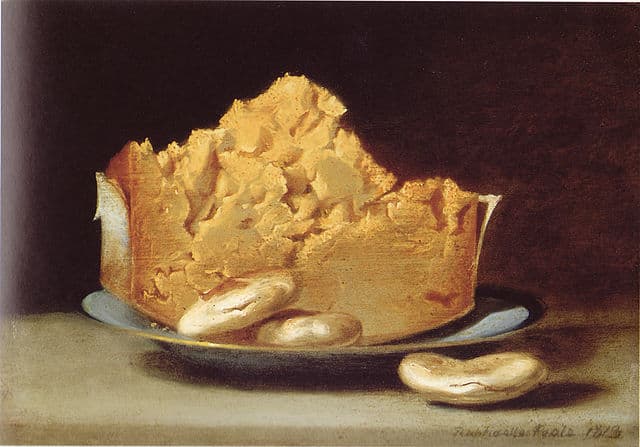Poem of the Day: ‘On Mites’
An eighteenth-century curiosity, by the English poet Stephen Duck, whose verse was parodied even as he himself was popular.

Today’s Poem of the Day is an eighteenth-century curiosity, by the English poet Stephen Duck (1705–1756). The son of a poor Wiltshire family, classified as a “natural” or untutored genius, Duck had left his charity school at thirteen to begin a life of field labor. A self-directed reader and self-taught poet, he came to the notice and patronage first of a prebendary of Winchester Cathedral, then of Queen Caroline, who employed him as librarian for Merlin’s Cave, her literary folly at Richmond Park. Both Alexander Pope and Jonathan Swift knew Duck. They admired him personally for his sincere piety, and when he was rumored to be in the running as the next poet laureate, savaged him in print for his rhymes. Still, everywhere he went, he was liked.
Honestly, we might be tempted to join Pope and Swift in the satire corner. Against the backdrop of brittle laughter that characterizes so much about the Augustan era, “On Mites” reads like an exercise undertaken by the same earnest campus reporter, in James Thurber’s “University Days,” whose school-newspaper lede asks whether anybody has noticed the sores on the tops of the horses in the animal husbandry building. There is, for example, the epigraph’s assurance that despite the title, which some people might find off-putting, the poem isn’t actually about mites. Once we pass that sticking point and start on the rotten cheese, the iambic tetrameter couplets rock along pleasingly, with some slant rhymes and cleverly emphatic metrical substitutions in lines 8, 10, and 13. But there’s something a little laborious in the setup of this epic simile. (Only symbolic mites in this poem, lady!) Has Madam failed to consider that the sense of entitlement that swells these (entirely metaphorical!) mites could suggest . . . something else?
At any rate, it’s possible to imagine how, in his day, Duck’s verse was parodied even as he himself was popular. It’s possible, too, to imagine the emotional toll exacted from an apparently decent man seeking to better himself among people whose personal admiration is never enough to silence their aesthetic criticism. Taking holy orders after the death of his royal patron, Duck accepted a series of clerical positions, burying the second of his wives and marrying a third. He continued to write poems. In 1756 he died by drowning, an apparent suicide: the man whose name had been whispered as a possible poet laureate, but only because everybody liked him.
On Mites (To a Lady)
by Stephen Duck
‘Tis but by way of Simile.
Dear Madam, did you never gaze,
Thro’ Optic-glass, on rotten Cheese?
There, Madam, did you ne’er perceive
A Crowd of dwarfish Creatures live?
The little Things, elate with Pride,
Strut to and fro, from Side to Side:
In tiny Pomp, and pertly vain,
Lords of their pleasing Orb, they reign;
And, fill’d with harden’d Curds and Cream,
Think the whole Dairy made for them.
So Men, conceited Lords of all,
Walk proudly o’er this pendent Ball,
Fond of their little Spot below,
Nor greater Beings care to know;
But think, those Worlds, which deck the Skies,
Were only form’d to please their Eyes.
___________________________________________
With “Poem of the Day,” The New York Sun offers a daily portion of verse selected by Joseph Bottum with the help of the North Carolina poet Sally Thomas, the Sun’s associate poetry editor. Tied to the day, or the season, or just individual taste, the poems will be typically drawn from the lesser-known portion of the history of English verse. In the coming months we will be reaching out to contemporary poets for examples of current, primarily formalist work, to show that poetry can still serve as a delight to the ear, an instruction to the mind, and a tonic for the soul.
